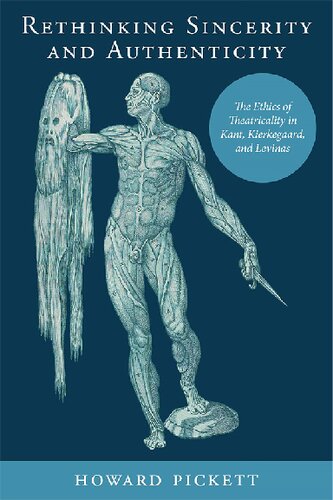

Most ebook files are in PDF format, so you can easily read them using various software such as Foxit Reader or directly on the Google Chrome browser.
Some ebook files are released by publishers in other formats such as .awz, .mobi, .epub, .fb2, etc. You may need to install specific software to read these formats on mobile/PC, such as Calibre.
Please read the tutorial at this link: https://ebookbell.com/faq
We offer FREE conversion to the popular formats you request; however, this may take some time. Therefore, right after payment, please email us, and we will try to provide the service as quickly as possible.
For some exceptional file formats or broken links (if any), please refrain from opening any disputes. Instead, email us first, and we will try to assist within a maximum of 6 hours.
EbookBell Team

0.0
0 reviews"This above all: To thine own self be true," is an ideal―or pretense―belonging as much to Hamlet as to the carefully choreographed realms of today’s politics and social media. But what if our "true" selves aren’t our "best" selves? Instagram’s curated portraits of authenticity often betray the paradox of our performative selves: sincerity obliges us to be who we actually are, yet ethics would have us be better.
Drawing on the writings of Immanuel Kant, Søren Kierkegaard, and Emmanuel Levinas, Howard Pickett presents a vivid defense of "virtuous hypocrisy." Our fetish for transparency tends to allow us to forget that the self may not be worthy of expression, and may become unethically narcissistic in the act of expression. Alert to this ambivalence, these great thinkers advocate incongruent ways of being. Rethinking Sincerity and Authenticity offers an engaging new appraisal not only of the ethics of theatricality but of the theatricality of ethics, contending that pursuit of one’s ideal self entails a relational and ironic performance of identity that lies beyond the pure notion of expressive individualism.